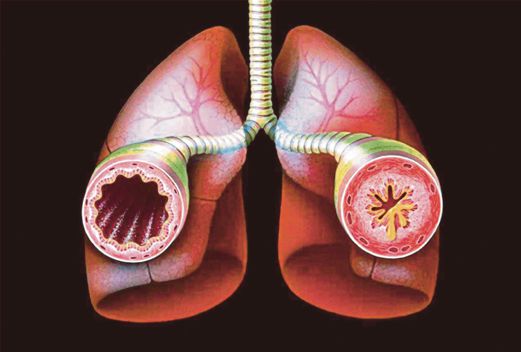AN asthma attack, a friend once described, is like having a gorilla sitting on your chest. It makes breathing extremely difficult, coupled with endless coughing and tightness of the lungs. If it prolongs, you will feel like dying.
What a shocker, therefore, when I came across a write-up in Science of Us, a New York-based journal, recently which said many of the 250 million people worldwide who are diagnosed with asthma may not actually have it.
It is really hard to believe, maybe because I am a chronic patient carrying the ailment for more than 30 years. And, I almost died of it seven years ago.
What happened that night on June 11, 2009, was unforgettable. I was going through a bad flu for the third straight day and was wheezing heavily.
An attack is coming, I thought, so I got my home remedies, especially the nebuliser, all ready. I had used the inhaler that I always had with me to no end already.
I laboured to breathe through the nebuliser, a device that changes liquid medicine into a fine mist. However, it did little to relieve the gasping.
Such a spasm never happened before, so, after a while, I turned on the nebuliser and puffed and panted through it again. When the breathing became more punishing, I sensed it was trouble. There came a time when I could hardly breathe.
Seeing my condition, my son immediately drove me to the hospital with my wife by my side. I struggled to walk and upon reaching, was straight away taken to the emergency section where they again gave me the nebuliser. When I said no, I couldn’t breathe and was writhing, they brought out an oxygen tank and asked me to breathe through it. I couldn’t. I was gasping until I passed out.
The next thing I knew, I was awakened by someone. I opened my eyes and saw six people in white around my bed and thought they were angels until they introduced themselves to me. They were doctors, and strangely, I never saw them again after that.
No, I was not dead yet, but I didn’t know what I had gone through or what they did to me while I was out the whole night. All I knew was that I was in intensive care and breathing through an artificial respirator. But, I heard the doctor telling my wife that, if I had arrived 15 minutes later, they would likely encounter problems. I guess my brain would have stopped working.
So, I never stopped taking my asthma medication then on till today, so much so that I developed all kinds of side effects. Well, it is a matter of choice they say. I wish to stay out of another big asthma attack again, God forbid.
Therefore, the write-up in Science of Us, which quoted an American Medical Association study, seems to suggest that many people who are diagnosed with asthma don’t, in fact, have asthma. It said Canadian researchers recruited 613 men and women who had recently been given asthma diagnoses, and then “over four visits, they gave them a series of drug challenges and spirometry, a physical test of breathing capacity, to confirm or rule out the disorder.
“The researchers were able to rule out asthma in 203, or about a third of the subjects, most of whom were taking asthma medicine.” As it turned out, a lot of them had been diagnosed on the basis of symptoms alone. It added that if you have shortness of breath, wheezing or coughing, you should suggest that the doctor order a spirometry test. “It’s a quick test with no risks or side effects that can predict asthma or other respiratory conditions.”
A patient who has gone through hell like me certainly does not need a second opinion. Even if you go for spirometry, it is going to make little difference after living 30 years with asthma. The nightmare of 2009 is fresh in my memory. Perhaps, some of the 250 million asthma patients worldwide think spirometry is not going to serve them well either.
Syed Nadzri is a former NST group editor.






